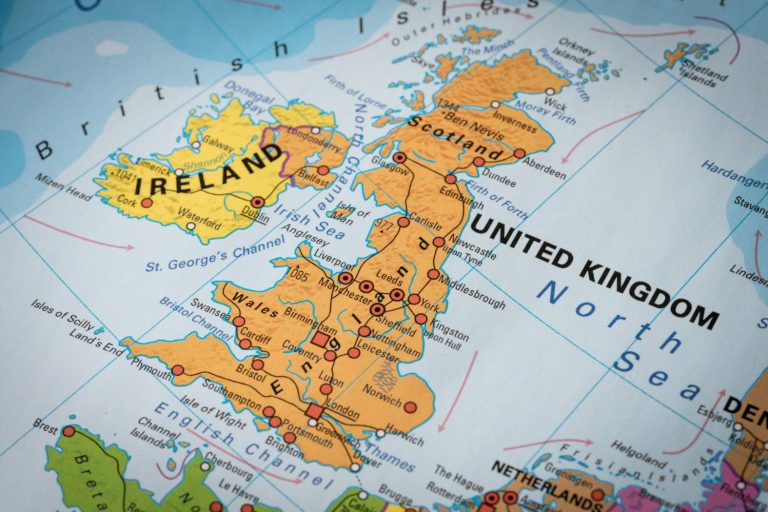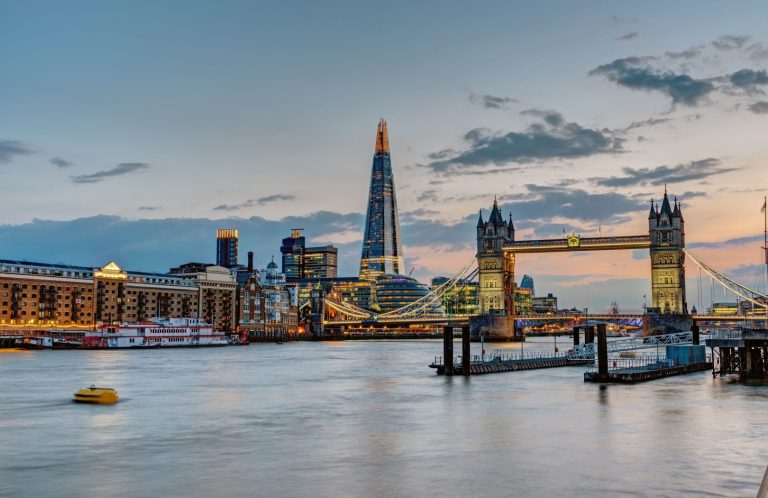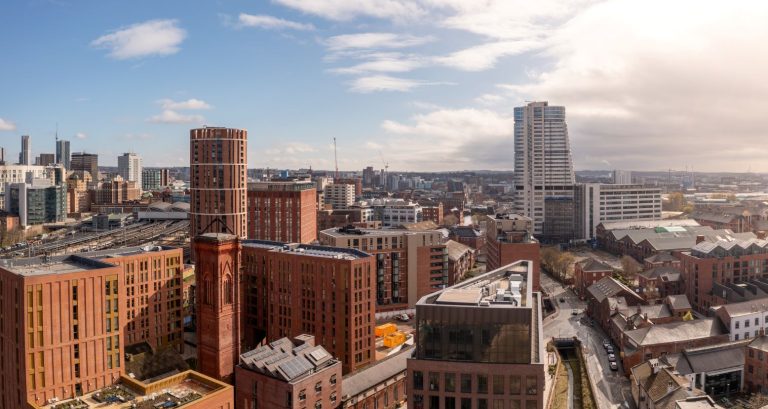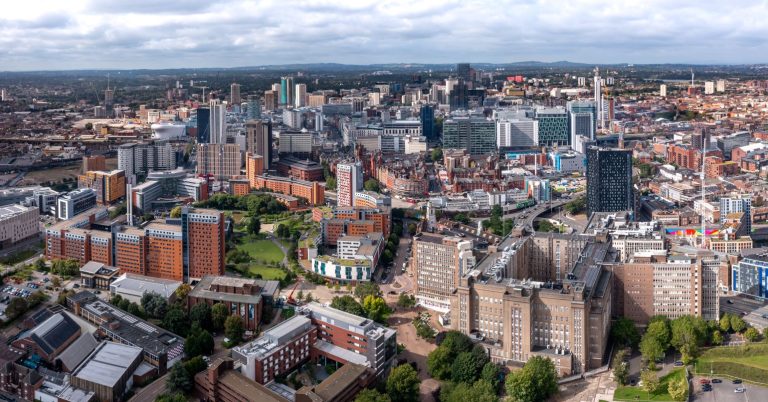
How many digital marketing agencies are there in the UK?
Keen to find out exactly how many digital marketing agencies are currently operating in the UK? As one of the thousands of digital marketing agencies
Manchester is the third largest city in the UK with an undeniably rich industrial past.
The city is the birthplace of the industrial revolution, but it has made its mark on the rest of the world in many other ways too… popular culture, music, science, politics and football.
Manchester has been consistently voted the best city in the UK to live in according to The Economist’s Global Liveability Survey which is published every year, ranking the living conditions of 140 cities around the world.
In this blog, you’ll find 20 fun and interesting facts about Manchester that might take you by surprise.
Whether you are a born and bred Mancunian or just a lover of history, you’ll be blown away by some of the fascinating facts about this great place.
As Ian Brown from The Stone Roses once said: “Manchester’s got everything except a beach!”
When the Romans first arrived in Manchester in AD79, they built a fort on the banks of the River Medlock. The settlement was between two hills, that in their opinion looked a bit like breasts.
They named the place ‘Mamucium’, which translated as “breast shaped hills”. Much later in history when The Normans arrived to establish a new settlement, they kept part of the original name but added Chester at the end, denoting that it was a site of a Roman fort. The city from that point forward became know as Manchester.
However, these facts are at odds with the infamous Mark Kennedy’s Afflecks Palace mosaic in the city’s Northern Quarter that states that on the sixth day, God created Manchester!
Manchester is where the Industrial Revolution first started and it is the world’s first proper industrial city.
At the beginning of the 18th century, Manchester was a picturesque market town, with a population spread across only a small number of streets. Demand for cotton and coal changed all that and rapidly transformed the place into the world’s first industrial city.
The opening of the Bridgewater Canal in 1761 to transport coal from the mines in Worsley to Manchester marks the beginning of the Industrial Revolution.
The invention of steam powered engines and the growing demand for cotton, rocketed Manchester to the forefront of the global textile industry.
Manchester grew at an astounding rate, and the booming economy attracted migrants from all over the UK. Manchester was given city status in 1853.
In the 19th century Manchester was nicknamed “Cottonopolis”.
The advent of the world’s first steam-driven textile mills spurred many cotton mills to start opening around the city. By 1853, there were a total of 108 mills in Manchester.
The hills that surround Manchester are green for a reason. The ever so damp climate provided the area with the optimum conditions for processing cotton. The moist atmosphere prevented the cotton fibres from splitting and the nearby rivers and waterways powered the mills and factories.
80% of the world’s cotton would be manufactured in the city and then transported via the world’s first railway to the docks in Liverpool for distribution across the globe.
By 1894, the Victorians had built a canal to transport textiles and other goods to Liverpool. The Manchester Ship Canal is a wide, 36-mile long river navigation. At the time of its completion, it was the largest navigation canal in the world, and made Manchester one of the largest ports in Britain.
If you ever go to Australia and are looking for any kind of textile such as bed sheets, you will be sent to the ‘Manchester Department’ of the store. This is all because the textiles would arrive in Australia by ship and all the boxes had ‘Manchester’ printed on them.
Manchester’s Curry Mile in Rusholme hosts the largest concentration of Indian restaurants outside of the Asian continent.
The famous Curry Mile however is only actually about half a mile long!
You’ll find a huge selection of Indian restaurants where you can get a tasty curry at all times of the night and day. It also has a great selection of Middle Eastern restaurants too, so there is plenty of choice if you are after something spicy.
Manchester is famous for its universities. Many famous scientists studied and worked there and many students went on to do great things.
Physics and chemistry are areas that put the city on the scientific map. John Dalton worked and lived in the city as did James Chadwick and JJ Thompson.
In 1917, Ernest Rutherford who was teaching at the University of Manchester split the atom for the first time.
This significant breakthrough has revolutionised the world in many ways, enabling the development of nuclear power and techniques such radiotherapy to treat cancer.
Born in New Zealand, he was Chair of Physics at the University, and in 1908 won the Nobel prize for Chemistry.
Another famous scientist, James Joule was born in neighbouring City of Salford in Greater Manchester and lived south of the city in Sale.
Also talking of science, The University of Manchester is the place where graphene was discovered in 2004. A material 200 times stronger than steel and lighter than paper, it’s a game changer for the future as its uses are so wide-ranging.
Chetham’s library, near Victoria Station was the world’s first free library. It was opened to the public in Manchester in 1653.
It has been in use ever since and holds 100,000 books including 60,000 that were published before 1851.
The Midland Hotel is one of the most famous hotels in Manchester. It’s located opposite St Peters Square, near to Central Library and Manchester Central Exhibition Centre.
There are many reasons why The Midland hotel is famous, but being the birthplace of Rolls Royce is the one you’ll hear the most often.
The hotel is where Mr Rolls a car salesman and Mr Royce an engineer, first met in 1904. It was at The Midland that they agreed to found their automotive company, Rolls-Royce.
They launched the Silver Ghost in 1907, which was their first car. Rolls Royce Merlin engines also powered the legendary RAF Spitfire planes that helped win the Battle of Britain and defeat the Nazis in World War II.
Rumour has it that The Midland Hotel was one of Adolf Hilter’s favourite English buildings. In fact, he was so enamoured with the beauty of the building that it has been claimed he planned to set it up as a Third Reich HQ in the city and ordered the Luftwaffe to avoid bombing it during The Blitz. Whether this is actually true is very difficult to verify, but has been widely discussed.
‘Baby’, the world’s first electronic stored computer programme was built and designed at the University of Manchester.
The Manchester ‘Baby’ was also called the Small-Scale Experimental Machine (SSEM). It was built by Frederic C. Williams, Tom Kilburn, and Geoff Tootill, and ran its first program on 21 June 1948.
It was not intended to be a practical computing engine, but a testbed for the Williams tube, the first truly random-access memory. Described as ‘small and primitive’ 50 years after its creation, it was the first working machine to contain all the elements essential for a modern electronic computer.
As soon as the Baby had demonstrated the success of its design, a new project was started at the university to develop it into a full-scale operational machine, the Manchester Mark 1.
The Mark 1 quickly became the prototype for the world’s first commercially available general-purpose computer, the Ferranti Mark 1.
Baby weighs about 500kg and is on display at Manchester’s Museum of Science and Industry.
Manchester is a bustling centre for capitalism, but it was once the scene of bread and labour riots with working and non-titled classes demanding a greater political recognition. One such gathering ended with the brutal Peterloo massacre of 1819 which resulted in the death of 18 people.
The economic school of Manchester Capitalism was developed in Manchester and was known as ‘Manchester Liberalism’. From 1838 onwards, Manchester was the centre of the Anti-Corn Law League.
Manchester has a notable place in the history of Marxism and left-wing politics too. It was the subject of Friedrich Engels‘ book, The Condition of the Working Class in England in 1844.
Engels spent much of his life in and around Manchester and when the co-author of his Communist Manifesto Karl Marx visited, they often met up at Chetham’s Public Library.
The books Marx was reading at the time are still available in the library, and you can still see the seat in the window where the German philosophers, Engels and Marx would meet up.
After Oxford and Cambridge, Manchester has some of the best universities in the country. The University of Manchester has an impressive 25 Nobel laureates amongst its staff and alumni.
These include: Joseph John Thomson, Ernest Rutherford, James Chadwick, Arthur Harden, John Cockcroft, William Bragg, Niels Bohr, Archibald V Hill and Alexander Todd.
The Liverpool and Manchester Railway was opened in 1830. It was the first railway built primarily to transport passengers and to be powered exclusively by steam.
The first station was situated on Liverpool Road, which is now forms part of the Manchester Museum of Science and Industry.
Unfortunately, the opening day of the railway was marred with disaster. On 15 September 1830 the MP for Liverpool and former Cabinet minister, William Huskisson, alighted from his steam locomotive carriage and became the first person ever to die in a railway accident.
Huskisson was attending the opening of the Manchester and Liverpool railway, along with a number of other high-profile dignitaries. When his train had stopped for water, Huskisson decided to go to greet the Duke of Wellington, who was sat in another carriage. As he climbed up into the duke’s carriage he lost his balance and fell straight into the path of Stephenson’s Rocket, which was travelling down the adjacent track.
Music is a very important part of Mancunian culture.
Manchester is home to some of the biggest bands the world has ever seen. Amongst them you can find Oasis, The Smiths, The Chemical Brothers, The Chameleons, A Certain Ratio, 10cc, Simply Red, Hermans Hermits and Take That.
The Bee Gees Gib brothers also grew up in Manchester, having moved from the Isle of Man at an early age and rock legend Lemmy from Motorhead started his career in Manchester in the early 60s, playing in bands while living in Stockport, Prestwich, Wythenshawe, and Cheetham Hill.
[See local artist, Sue Willis’s Madchester Music Map to see all the other famous Manchester bands.]
Salford, Manchester’s neighbouring city and Greater Manchester borough has also spawned some world class bands too including The Hollies, Happy Mondays, Joy Division and New Order. [VIDEO: Watch the Salford Music Map video to see all the other famous Salford bands.]
Manchester is also famous for its buzzing nightlife, and has seen many legendary nightclubs open and close over the years including The Hacienda, The Twisted Wheel, The Boardwalk, Sankys Soap, Discotheque Royale, The Banshee and Jilly’s Rockworld to name but a few.
The filming of 2011’s Marvel’s comic book adaptation Captain America: The First Avenger took place in Manchester. Much of the film was shot in the UK around Dale Street in Manchester’s Northern Quarter. It was chosen as the buildings closely resembled 1940s New York City. Some parts of the movie were also filmed in Stanley Dock in Liverpool.
Manchester has also been used in the filming of Peaky Blinders, Queer as Folk Shameless, The Royale Family, Cold Feet, Life on Mars, Snatch, Sherlock Holmes, 24 Hour Party People, The 51st State and the Netflix TV series, The Crown.
The Women’s Social and Political Union was founded in 1903, in Manchester, by Emmeline Pankhurst.
Emmeline was a famous political activist responsible for suffragette movement that helped give British females the right to vote. She was recently listed as one of the 100 most important people of the 20th century.
Manchester is home to Coronation Street, the world’s longest running TV soap opera.
Coronation Street has been on the box since 1960. It follows the regular daily lives of people in the fictional town of Weatherfield and is set in Manchester. It has starred huge names including Liz Dawn and William Roache and has been praised for its realistic storylines.
Any road, the set is located at ITVs Trafford Wharf Studios in MediaCityUK.
Manchester is the birthplace of the world’s first professional football league.
As well as being the home of two world-famous Premiere Football teams, Manchester United and Manchester City, the original Football League was created at Manchester’s Royal Hotel, Piccadilly in 1888.
Following an invitation from the Bolton based Manchester band Buzzcocks, on the 4th of June 1976, London punk band The Sex Pistols performed at Manchester’s Free Trade Hall. This legendary concert has gone down in music history as one of the most important British gigs ever.
Tickets were sold for 50p and only 42 people went to that show (although many more ‘claim’ to have been there). The venue wasn’t even at a third of capacity, yet the impact of the show inspired many in the audience who then went on to make their own mark on the music history.
Amongst the people that went to that gig that night, were members of bands like The Smiths, Magazine, Joy Division and the The Fall. Also in the audience were some other famous names from the music industry including Tony Wilson, future owner of Manchester nightclub, The Hacienda and Factory Records.
Alan Turing, is considered the father of modern computing.
He taught at The University of Manchester, but he is most famously known for decrypting the German Enigma code. According to Prime Minister, Winston Churchill this breakthrough shortened WWII by 2 years and helped the Allies win the war.
Turing was a gay man and in 1952, he was arrested for being homosexual which was illegal at the time. His criminal record prevented him working for the government. At the age of 41, just a few years later, he sadly took his own life by cyanide poisoning.
In May 2012, a bill was put before the Houses of Lords and almost 60 years later in 2013, Turing received a Royal Pardon from Queen Elizabeth II.
A statue of him with the Newton apple is located in Sackville Gardens near Manchester’s Gay Village.
Alan Turing will feature on the Bank of England’s new £50 note due to enter circulation in 2021
Canal Street in Manchester is the site of Manchester’s famous gay village. The pedestrianised street, which runs along the side of the Rochdale Canal, is lined with gay bars and restaurants. At both day and night the street is popular with visitors, including many LGBT tourists from all over the world.
Manchester is one of the most LGBT-friendly cities in the world and has been for many decades.
The New Union Pub was the first gay venue on Canal Street where it hosted drag shows during WWII, over a decade before Alan Turing was prosecuted.
What was once the long disused docklands of Salford Quays, has now been transformed into a world-class business, cultural and residential hub. Home to the BBC and ITV, Media City UK is now a thriving creative centre for digital marketing, business, media and broadcasting.
The 200-acres development situated on the banks of the Manchester Ship Canal is also a base for the University of Salford. The land Media City occupies was originally part of the Port of Manchester and Manchester Docks. This is where goods including cotton and textiles were loaded onto ships for distribution around the world. The location therefore holds an important place in Manchester and Salford’s industrial past.
The area attracts businesses from all over the world and by focusing on broadcasting, digital media, innovation and creative design, Manchester has established a solid bedrock where it can serve the modern demands of the UK and the world for future generations.
Manchester has always been at the forefront of innovation, but is digital media and technology Manchester’s replacement for cotton? We certainly think so.
“Manchester… the belly and guts of the nation”– George Orwell
This blog was written by Aqueous Digital. We are an award-winning, family-run digital marketing agency. We specialise in organic and paid internet search, SEO, website content strategy and reputation management for high and ultra-high-net-worth individuals. Find out more about Aqueous Digital and how we support Manchester businesses.

Keen to find out exactly how many digital marketing agencies are currently operating in the UK? As one of the thousands of digital marketing agencies

Home to countless companies, London’s thriving business landscape is often at the forefront of the very latest changes and challenges. To survive in this ever

Meta descriptions play an important role in Google search results. Despite the fact they don’t directly impact a website’s ranking, they still influence click-through rates

Sheffield is renowned for its lively atmosphere and fascinating heritage. However, there are many things people don’t know about this wonderful city in the county

It’s a well-known fact that bustling Birmingham is the second largest city in the UK, but there’s far more to learn about this fascinating West

Searching for more ways to make your website’s informative content appear in the SERPs (Search Engine Results Pages) as a rich snippet? Many businesses create
This website uses cookies so that we can provide you with the best user experience possible. Cookie information is stored in your browser and performs functions such as recognising you when you return to our website and helping our team to understand which sections of the website you find most interesting and useful. Please review our full Aqueous Digital Cookie Policy for more details.
Strictly Necessary Cookie should be enabled at all times so that we can save your preferences for cookie settings.
If you disable this cookie, we will not be able to save your preferences. This means that every time you visit this website you will need to enable or disable cookies again.